Reforming Education in Delhi
Report
Reforming Education in Delhi
A revolutionary movement by AAP
By Hridbijoy

July 30, 2016 was a historic date for Delhi. I don't blame you for not remembering which leader's birthday it was or forgetting about another 'revolutionary' scheme launched on that day. What happened on that day is historic because for the first time parents of children studying in government schools had entered the school premises and interacted with teachers and principals. Mother of a differently abled girl who comes to the school on a wheelchair said "I have to come to the school gate every day to drop her off, but had never come inside before today." Thousands of parents responded to the call of Delhi government and attended the 1st Mega PTM in their neighborhood schools. Parent Teacher Meeting in today's world is taken for granted and it is assumed that monthly or bi-monthly PTMs are regularly held across all the schools. Unfortunately, that was not the case in Delhi.
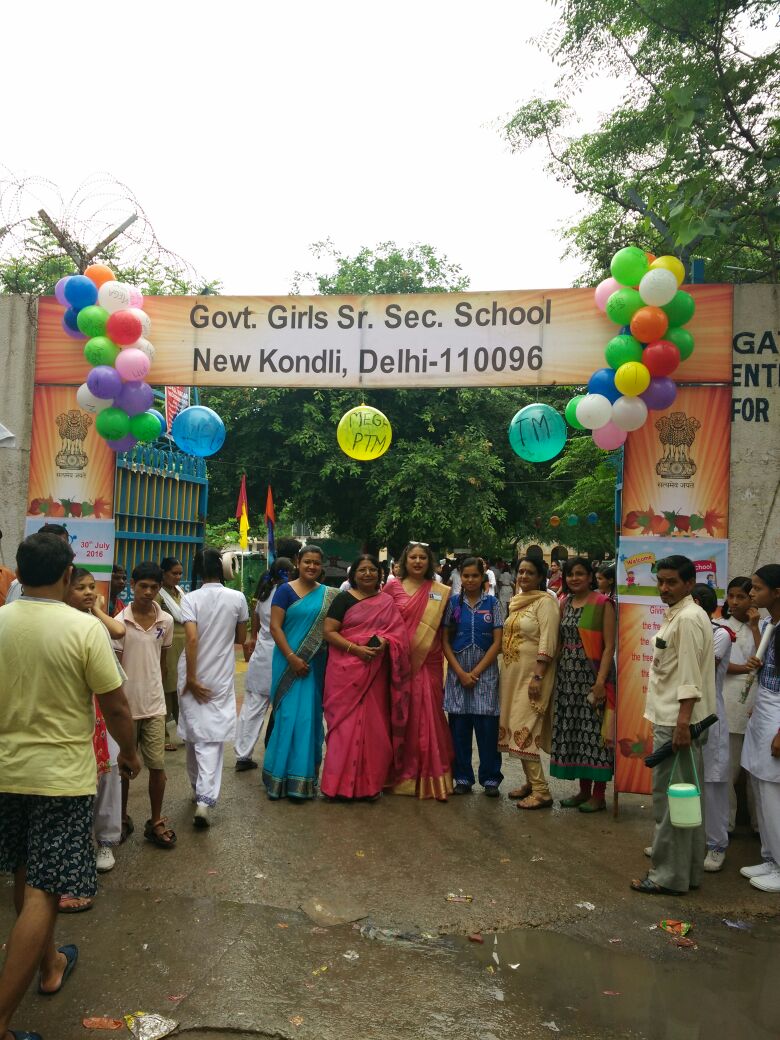 Most of the parents who had attended the mega PTM were satisfied with the government's efforts in improving the schools. But, this change didn't happen overnight.
Most of the parents who had attended the mega PTM were satisfied with the government's efforts in improving the schools. But, this change didn't happen overnight.
The Aam Aadmi Party came to power in February 2015 and since then the government has been trying hard to push forward the agenda of reforms which the party had promised to the people in the 70 point manifesto of 2015 assembly elections. The smile seen on parents' faces after coming out of the Mega PTM is the result of right steps taken during the past one and a half year by the government.
The first step taken by the Delhi government after coming to power caught the attention of many, as the Finance and Education minister Manish Sisodia announced a 106% increase in the budgetary allocation for education, making it 25% of the total state budget. This bold move was appreciated as it falls in line with our pre-set notions about budget dependent reforms. Empirically, public policy in India has not benefitted much from the increase in budget. Before Delhi, the two communist ruled states Kerela and West Bengal had also made similar efforts in reforming education. While Kerela succeeded, West Bengal failed miserably. At this stage the AAP government could have could have stopped the tiring process of reforming Delhi's education scenario, as they had already allocated more budgets towards education. But, the present Delhi government was formed by lawmakers who are known for their radical activism.
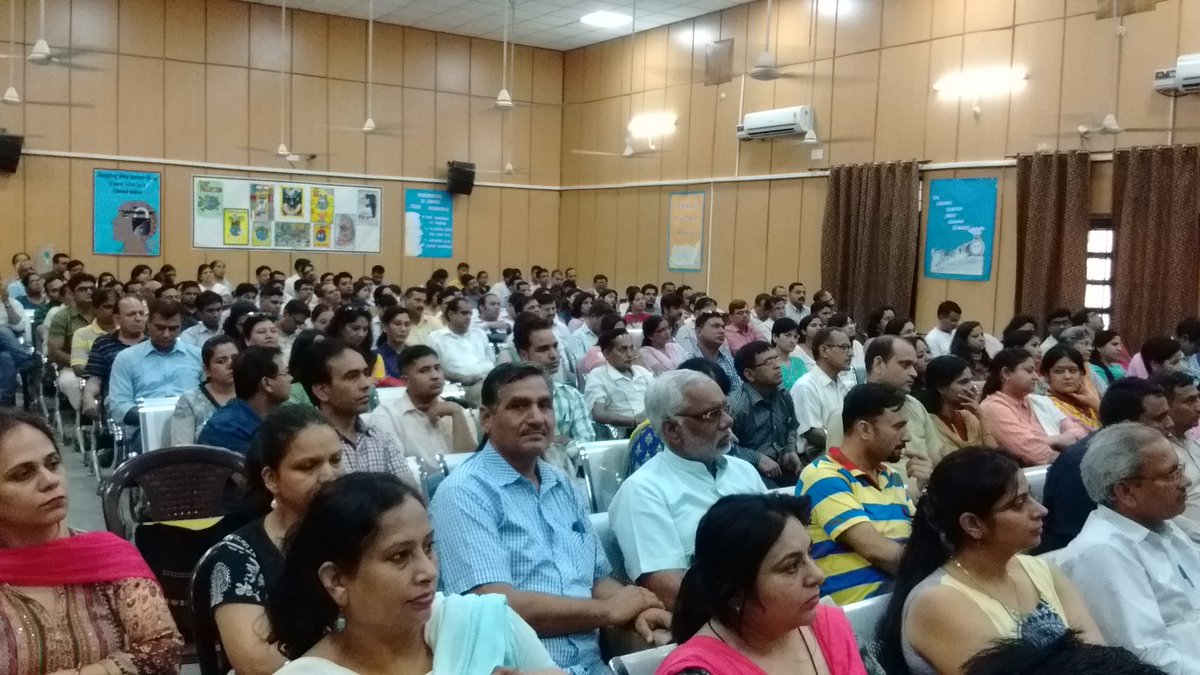
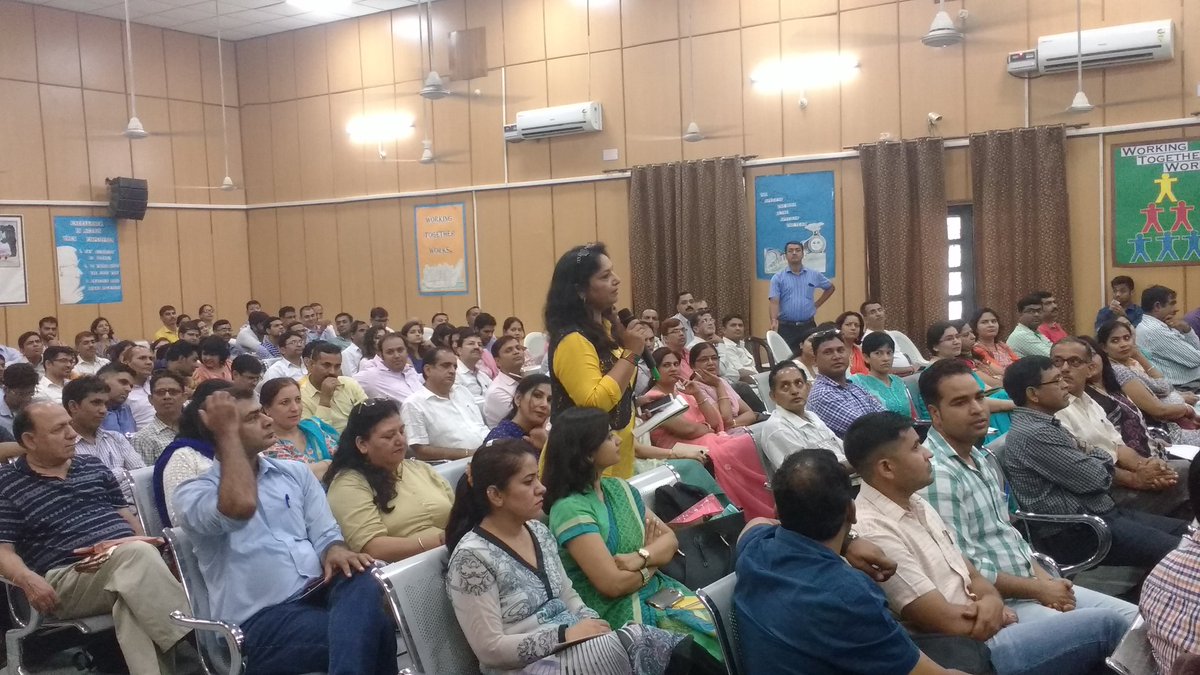
The Deputy Chief Minister, who is also the Finance and Education minister, had openly declared education as his top priority. It is quite unusual for a finance minister to pay more attention to education than to revenue generation, but he didn't accept the corrupt practices set by his predecessors; instead he decided to change the system itself.

Parents arriving for parent teacher
meeting in Delhi, a first ever
In February 2015 Delhi's 1023 government schools were marked by a severe shortage of classrooms, insufficient number of teachers since no recruitments had been made for a decade, and most importantly, low learning levels and high dropout rate among students. Fast forward to August 2016, and we see government schools in Delhi getting better in terms of infrastructure, administrative reforms, curriculum and teachers. The increased budget has helped the government in addressing basic problems, especially those of infrastructure. 8000 classrooms were constructed, housekeeping staff for proper cleaning of school premises were employed, schools got connected to the water pipeline, and Estate Managers were deployed in every school to supervise the maintenance and upkeep of the school. Estate managers use an android app to report their findings which is regularly monitored through customized dashboards by the officials and the deputy chief minister himself. Schools are improving not just because of the increased budget but also because of the commitment towards bringing a real change to classrooms.
All these measures were only the structural part of the reforms being carried out by the Delhi government. The real challenge was to break the inertia of indifference among officials and initiate changes in the policy. The government decided to conduct elections for School Management Committees mandated under the Right to Education Act 2009. Before September 2015, SMCs either didn't exist or were defunct. The government, with the help of civil society mobilized parents to participate in these elections. On September 5, last year elections were conducted for the first time all the 1023 schools run by the Delhi government. The formation of SMCs was crucial as it allows community members and local representatives to have a say in the administration of schools, , apart from serving as an effective feedback mechanism for the Government. Since then, SMCs have been helping the government in implementing different programs. The government has been able to form a very strong network of 16,200 SMC members spread across the city. SMC members are connected through social media to the education minister and his advisor Atishi Marlena.
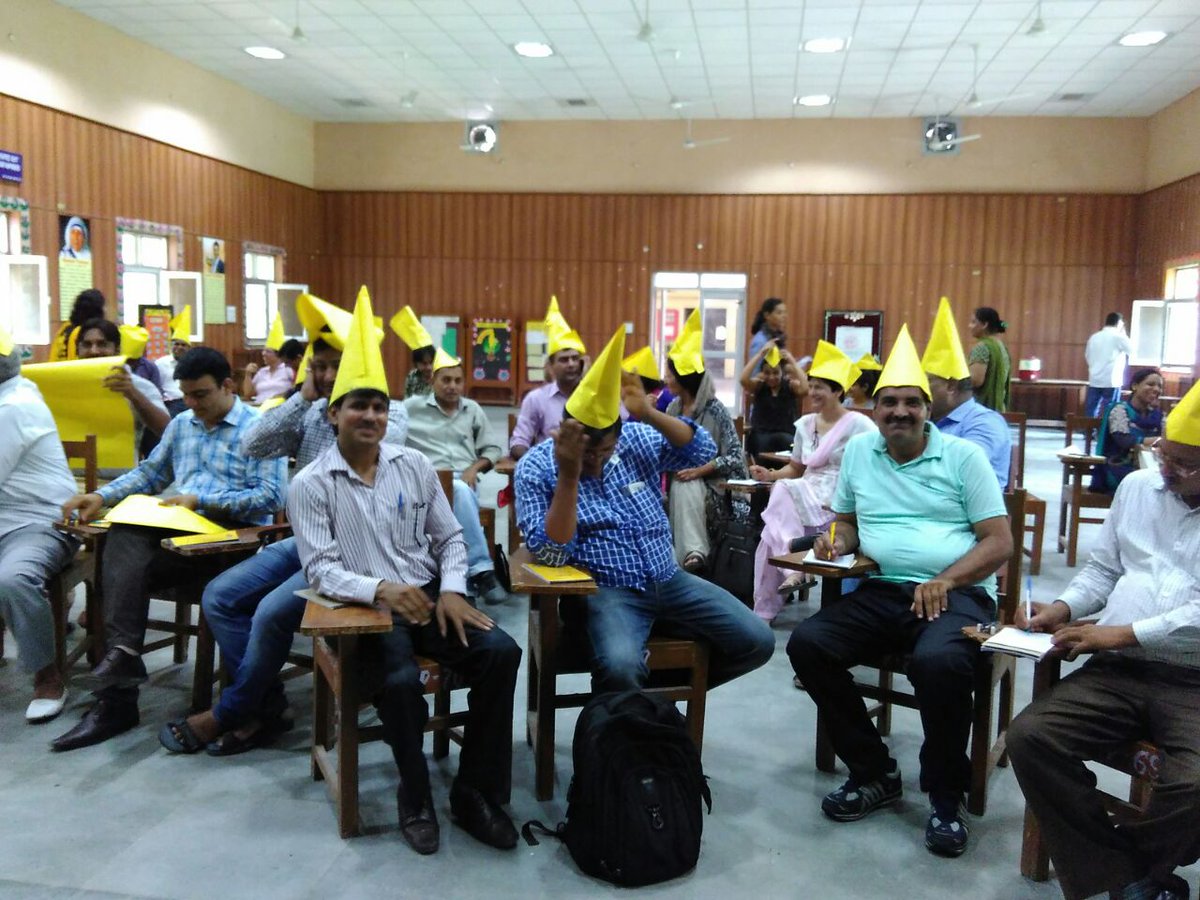
Regular training sessions are conducted for the SMC members and administrators by Saajha, an NGO with a vision to set up SMCs in all the schools of India. Recently, summer camps were organized in almost 600 schools with the help of SMCs. Through SMCs government is trying to bring together all the stakeholders accountable for children's future to initiate best practices in the classrooms of Delhi. The local MLAs are also member of the SMC and AAP MLAs have been taking round of schools for resolving various issues.
Last year right after the formation of the new government, the Chief Minister of Delhi Arvind Kejriwal had called a meeting of all the principals of government schools, where he had asked them to submit suggestions for improving their schools. He promised them necessary support from the government. 200 principals responded to his call by submitting their plans. After a detailed review of suggestions received, 54 schools were selected for the pilot project in which principals got more autonomy to take decisions and also launched a new initiative for increasing the learning level among children. Children join Delhi government run schools in class 6 as primary schools are run by the municipal corporations. Most of them were not able to read grade level textbooks. The government decided to take help of Pratham and for 90 days students were re-grouped according to their learning level after conducting a baseline assessment. This special program run in government schools benefitted thousands of students as they were able to read their textbooks and compete with their peers. An end line assessment confirmed the results.
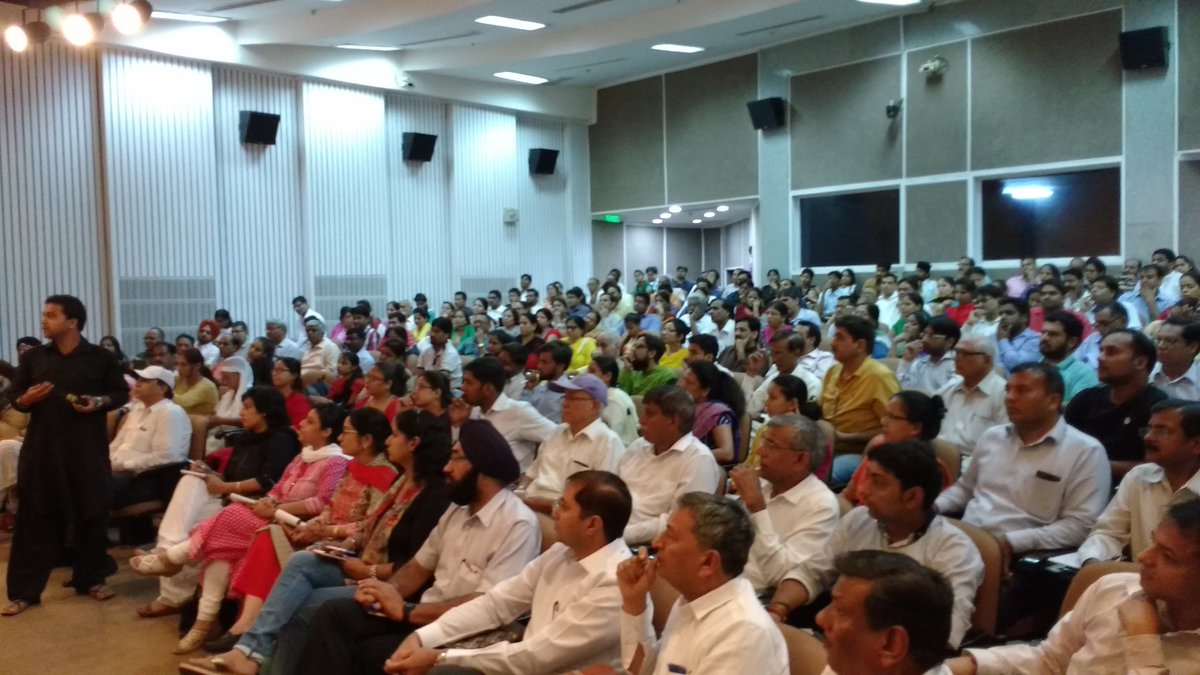
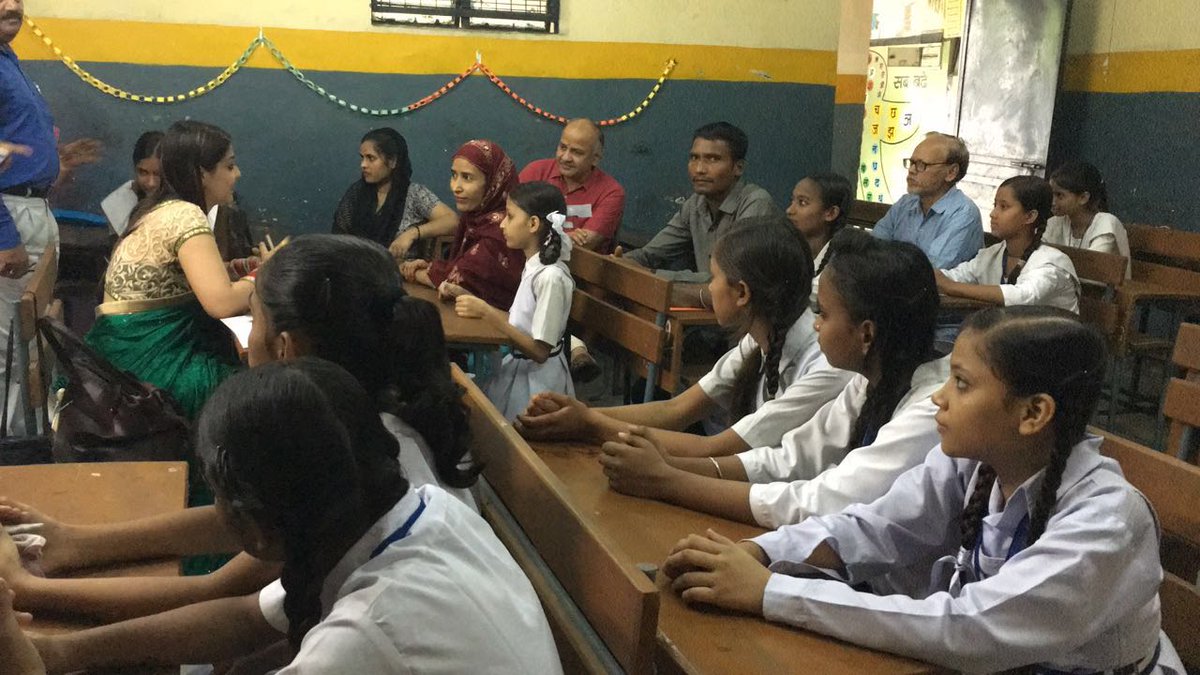
The government also realized the need for reducing syllabus as teachers were under pressure to complete the syllabus, while students couldn't even read. Syllabus reduction committees were set up by the State Council of Education and Research. These committees comprised of educationists and government schools teachers. For the first time, school teachers were asked to send their suggestions for the syllabus. Suggestions received from teachers were analyzed by the syllabus reduction committee and most of them agreed to reduce the syllabus by 25% but some eminent educationists resisted it. Educationists also opposed other moves by the government as for the first time the government refused to consider their suggestions for maintaining the status quo. Academicians and educationists were asked for solutions to the problems faced by government school teachers and parents. But, they never came up with tangible solutions.
Government also decided to invest in teacher training and classroom support system. In the pilot project of 2015, learning managers were identified in each school who helped other teachers in dealing with classroom and course issues. Based on the success of this intervention, a mentor teacher program was launched this year in which 200 highly motivated teachers were selected to support and guide other teachers by reaching out to them in the classrooms. In 2016 teacher training budget was increased by more than 100 %. Till last year teachers were not interested in teacher training sessions conducted by the SCERT as it didn't help them in dealing with issues they used to face during teaching. This year during the summer vacation, more interactive and activity based training sessions were conducted for the teachers. The teachers liked this approach as they were also going to be supported by mentor teachers.
The government partnered with CreateNet Education for a Principal Leadership Program. Initially this program was limited to the principals of the schools selected for 54 school pilot project in 2015. This year the program has been extended to all the principals. The government has also sent Principals to management institutes to become better leaders as they are being given more autonomy to take decisions without bureaucratic delays caused by the movement of files from school to the district office. Some principals were also sent to Cambridge University to learn some of the best practices being practiced in the West.
Among other issues the high dropout rate among students of class 9 is still a matter of concern for the government. Last year the Delhi Assembly decided to scrap the 'No Detention Policy' which allows students to get promoted till class 9 without passing exams. But, the bill has not been approved by the union government.
The government conducted a Baseline learning assessment of Class 6 students, which showed that 74% of them could not even, read a passage from their textbooks and 67% of students could not do simple 3 digits by 1 digit division In response to this challenge the government has recently launched an ambitious program "Chunauti 2018 or Challenge 2018”. This program aims to reduce the dropout rate by taking special measures for each student so that no one is abandoned by the system. Students from class 6 to 9 were organized into two groups Nishtha and Pratibha. Nishtha teachers focus on building reading, writing and basic Maths competency and those in Pratibha will carry on with their regular syllabus. These groups are formed according to the learning level of the children, as teachers freedom won't be affected by the syllabus. This would help the teacher is addressing the needs of children. Also children will learn better as they will be in the appropriate group in which they can study at their own pace. In addition to these two groups, Vishwas was formed for the students who could not pass class 9th exams. Supplementary textbooks for the Nishtha group are prepared by government school teachers as regular textbooks are not useful in dealing with this issue.
Government is also introducing new tech based interventions such as the CCTV project, which is being run as a pilot in some schools. J-PAL, a premier research network, is supporting this project by studying the results to enforce mechanisms to improve teaching practices. The MIS system of Directorate of Education has also been updated recently to take better decisions based on data analysis. The government has recently announced Change Makers in Education Fellowship to get highly motivated young professionals to work with the government. These fellows will not only help the teachers but will support various other initiatives as well.

Delhi School teachers being trained at University of Cambridge
This year because of the genuine efforts made by the government and Indus Action, more than 36,000 children from Economically Weaker Section (EWS) got admission in private schools as the process was made transparent by using online system. While the government has been trying its best to do good for the children of Delhi, it has faced political resistance from the central government. Last year the Delhi legislative assembly amended the Delhi School Education Act & Rules 1973, after 32 years and also introduced a bill to check fee hike in private schools, but both have not been approved by the central government. The Delhi government had plans to build new schools but the Delhi Development Authority, which is controlled by the Ministry of Urban Development, Govt. of India has not sanctioned any land. The government wanted to improve the quality of mid-day meal provided, but the lieutenant governor of Delhi refused to sanction land for building a state of the art kitchen. Among all these issues the recruitment of teachers is more important but in this case also administrative hurdles are being created for the Delhi government.
The greatest achievement of Delhi government could be understood when you travel in a three wheeler and the driver tells you about what is happening in the schools of Delhi. School education has never been an interesting for the people but because of the rapid changes in Delhi, it has become a hot topic of public discourse. The government will keep on improving the system but it would require constant scrutiny and support from the citizens and the civil society.

 1.408.254.0954
1.408.254.0954




